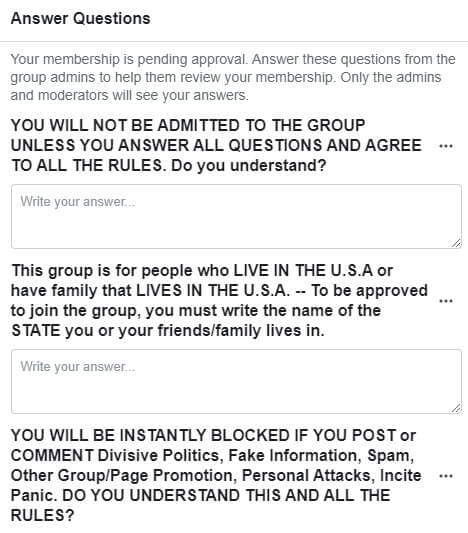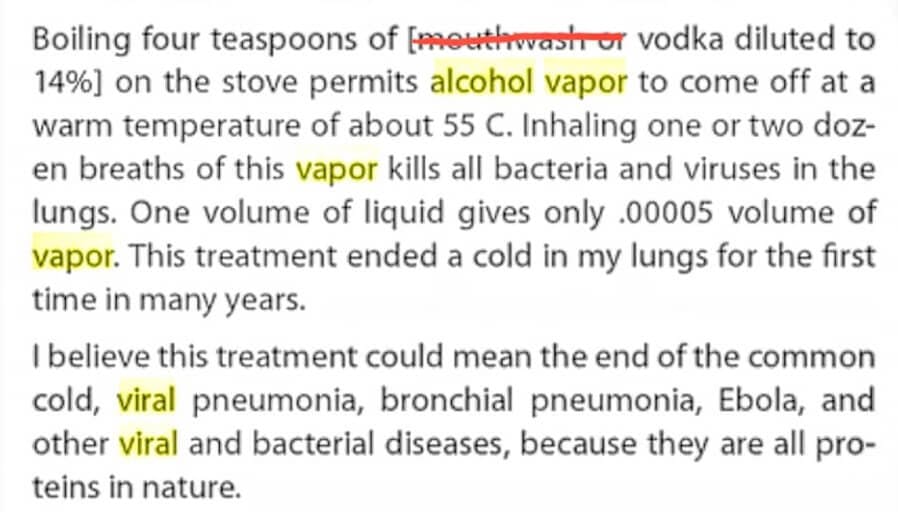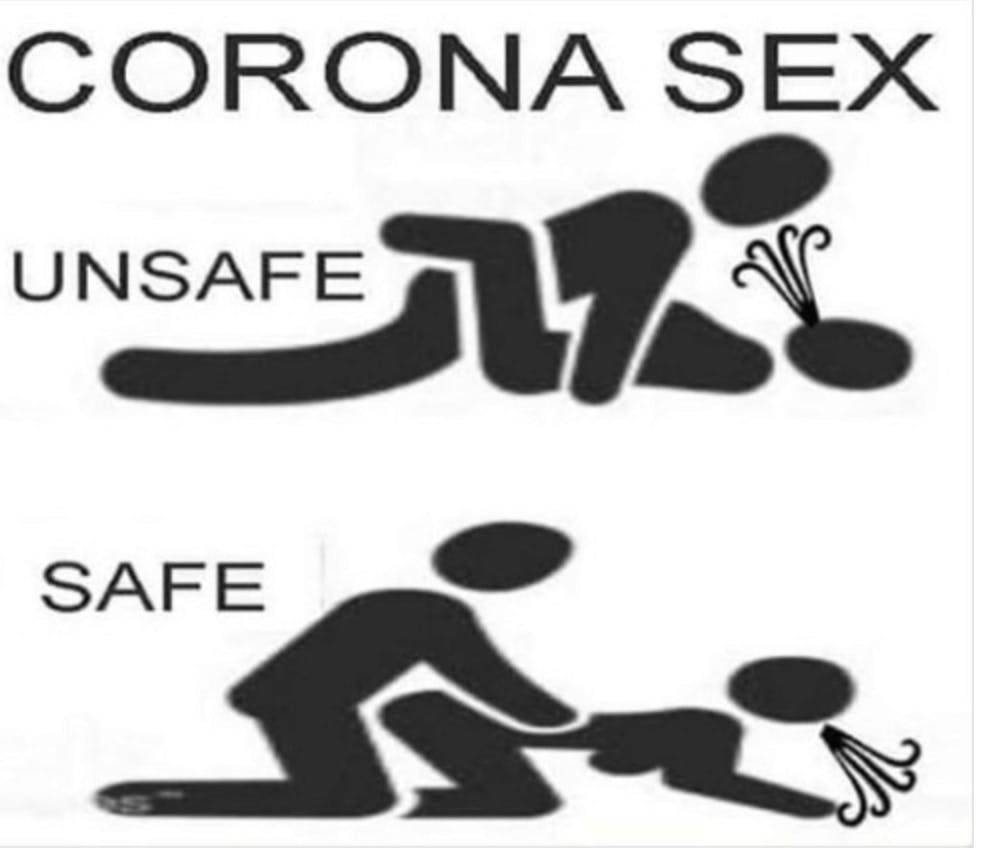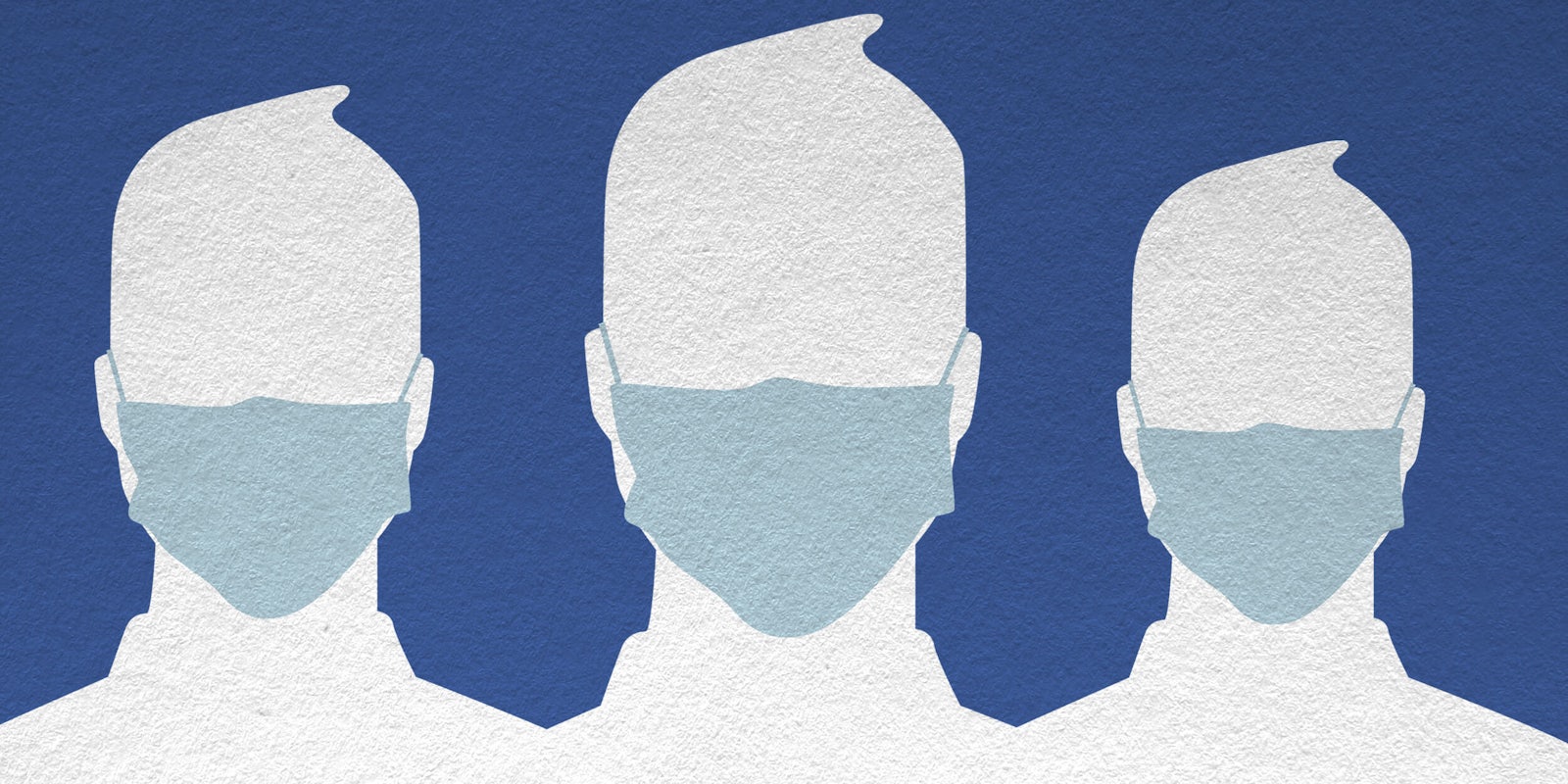As coronavirus cases and fears spread, Facebook groups dedicated to the disease are flourishing.
Posts on these pages range from funny and informative to dangerous and misleading. Among the memes and links to reliable sources, you’ll find misinformation and conspiracy theories about the origin, transmission, and possible ways to prevent or even cure the novel coronavirus, COVID-19.
There are dozens of these groups. Membership in them ranges from the hundreds to the thousands. One of the largest has nearly 40,000; several have 20,000 or more. Engagement tends to be extremely high. In most groups, members cumulatively post between a few dozen and several hundred times daily. One averages more than 2,500 posts per day.
Like other social media companies, Facebook’s strategy for trying to prevent the spread of misinformation about coronavirus on its platform has evolved since the outbreak began. In February, the company announced that it would redirect people who searched for “coronavirus” to credible organizations like the World Health Organization and Centers for Disease Control and Prevention.
Other vetted, verified pages show up in the search results below this pop-up. The company has also increased its fact-checking efforts associated with the virus. On Friday, it announced that it was temporarily banning ads and commerce listings for medical facial masks.
Groups are the next frontier of Facebook’s effort at tamping down on inaccurate information. It already places groups that repeatedly post misinformation lower in the search results, and doesn’t suggest people join them, though it’s not clear what the threshold is for such penalties, as groups with inaccurate and potentially dangerous misinformation continue to be suggested, at least for now.
In some cases, Facebook removes pages’ ability to advertise and monetize.
Facebook told the Daily Dot that in the coming days it will ramp up restrictions on the circulation of groups and pages that routinely share misinformation, and, for repeat offenders, may delete the page entirely.
A company spokesperson said in a statement, “We’re focused on connecting people with accurate information and removing harmful misinformation related to COVID-19, including in Groups. Anyone who searches for COVID-19 related groups is directed to credible information from health organizations.
“We already reduce the distribution of any groups that repeatedly share false news, and in the coming days we’ll begin removing coronavirus related groups and pages from the recommendations we show people.”
Facebook is clearly trying to strike a balance between allowing users to freely share and communicate while protecting the public from false, potentially harmful, information. Some groups and members are actively assisting Facebook in these efforts. The Daily Dot found evidence that admins delete inaccurate posts, as well as numerous examples of members pointing out incorrect information. Some groups’ policies specifically prohibit misinformation.

Other groups, however, serve as breeding grounds for conspiracy theories, unverified rumors, and misinformation. Some of it’s harmless, some of it’s helpful—it’s always advisable to stay hydrated, as one post on a group page about coronavirus urges—but some of it is dangerous, such as inaccurate recipes for hand sanitizer, fake cures, and advice of dubious quality.
One post on a private group claims that inhaling diluted vodka vapor will kill bacteria and viruses in the lungs. According to Poison Control, potential side effects of inhaling alcohol vapor—sometimes called a vaportini—include drunkenness, overdose, brain damage, and lung injury. They do not include killing bacteria or viruses in the body.

A post on another group dedicated to coronavirus updates claims it may be possible to cure it with silver nanoparticles, and links to information about the potential for using the substance to treat Ebola.
Non-profit fact-checker Africa Check rates the claim that nanosilver cures Ebola as an exploitative hoax. According to the Guardian, “Of course, silver nanoparticles are not highly effective against Ebola—they are not effective at all.”
Even if this were true, COVID-19 is not a hemorrhagic fever virus.
The Daily Dot found posts linking to articles claiming a vaccine will be ready soon, perhaps in as little as a few months; false claims that the disease is a bioweapon; and lots of rumors about new cases, government malfeasance, future plans, and preparations for a widespread quarantine in the U.S., like the one just announced in Italy.
Experts agree that it will be at least a year before a vaccine is ready for the public. There is no reason to believe that the virus was created as a weapon. The U.S. at this point has no plans for a large-scale quarantine, although New York state just announced a small one centered on a town outside New York City.
Even things that have been resoundingly debunked, like false claims that the flu is deadlier, are circulating in some groups, including one with more than 20,000 members.
Lots of posts are intended to be humorous. One claims that masturbation boosts the immune system and thus may be a way to protect against a serious occurrence of coronavirus. Another jokes that people can avoid spreading the virus during intercourse by only having sex in positions where they’re not facing each other.

But even seemingly harmless claims, like the advice to drink plenty of fluids as a possible way of protecting you from coronavirus, may give people a false sense of confidence and contribute to the disease’s spread. Further, people who don’t get the jokes may believe them, and contract or spread the disease.
Most group pages seem to have been created out of altruistic desires to help and share. Fear and distrust of the government are common themes in posts and comments. Anxiety is palpable. Conflicting messaging from government officials, including President Donald Trump, is a frequent complaint, as are worries that its response has thus far been incompetent.
Lack of faith in their government has led people to turn to one another and, in some cases, essentially try to read the tea leaves.
On one private group page, a member recently posted about learning that Trump’s 2020 campaign had canceled a bus tour. “For him to just say it’s nothing then up and cancel his month of touring,” he writes, “must be something serious. Trump is never one to shy away from the limelight…”
Trump himself wasn’t scheduled to be part of the tour, according to Fox News, though his daughter-in-law LaraLee Trump was. The campaign denies that the cancellation was motivated by coronavirus.
Another post on the same page wonders how many people are dying from treatments for coronavirus. There have been no reports of deaths or injuries due to treatments for the virus.
In many instances, when Facebook intervenes to remove inaccurate information, it simply disappears. But the Daily Dot did find some evidence of its efforts to fight disinformation about coronavirus in groups, such as screenshots showing warnings that a post contained false information.

You see start to see the scale and reason why Facebook struggles. Reshare a link to a popular meme in a Group and it’s easy to be flagged because it’s getting traction elsewhere. Upload a slightly different version of it, or something you made yourself into a post on a group and Facebook needs to begin the fact-checking anew.
But disinformation represents a fraction of the content on these pages. Most of what’s being posted is requests for advice, expressions of fear, jokes, and links to credible sources. Unfortunately, among these, there are hoaxes, conspiracies, and dangerous lies.
Some will invariably be angered by Facebook’s efforts to crack down on groups spreading misinformation about coronavirus. Others may already have contingency plans. The Daily Dot found one private group whose admin has created a second group in case the first gets deleted. The primary group has nearly 30,000 members.
Facebook has struggled with disinformation and conspiracy theories on its site for years. In the past, these issues largely centered on politics. In the face of a global outbreak of a highly contagious and deadly disease, the risks are equally high.
READ MORE:


